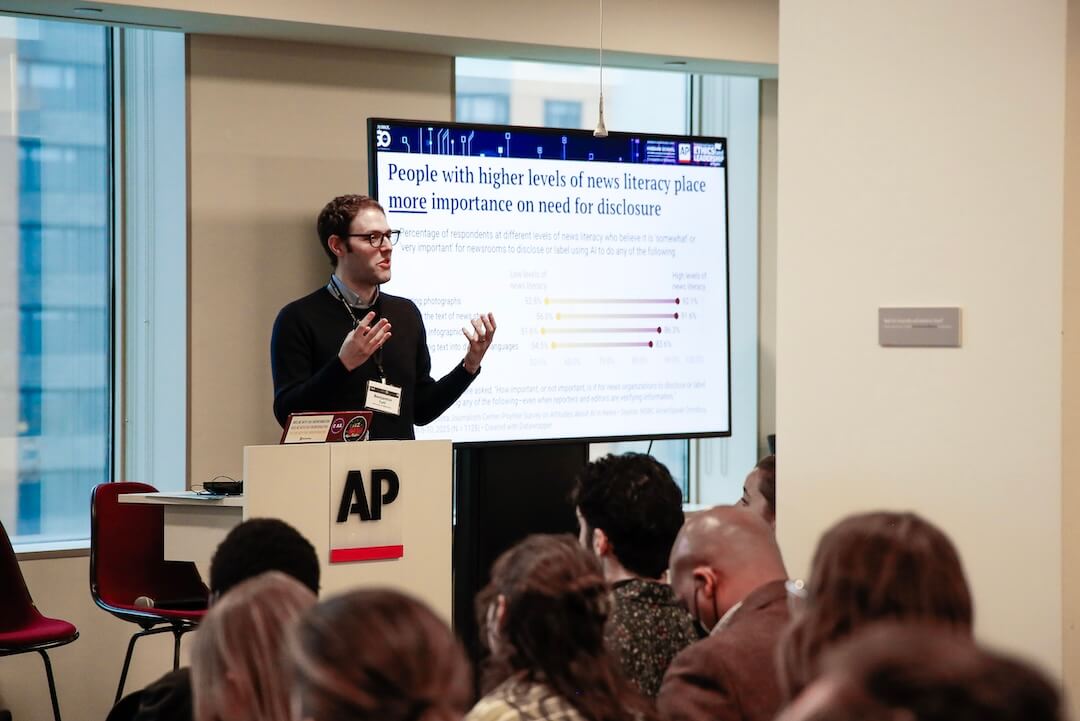When starting the CMS research process, the amount of options on the market can be overwhelming. And even when you make a decision – say, deciding to use WordPress – the amount of plugins, customization and configuration needed to get started are endless.
Here, we’ve put together a guide to five modern CMS options on the market. Of course, there are more out there, and this list could grow astronomically long. We pulled these five based on their modern feature set and wide range of customers served.
We also wanted to focus on CMSs that offer solutions that fulfill modern news business needs. While they all go about it differently, each of these options provides reader revenue and advertising features that help modern newsrooms make money on their digital content.
Currently, the guide covers Arc, Chorus, Ghost, The News Project and Newspack. As other solutions come on the market or come to our attention, we may update this guide with more.
This guide does not provide reviews or personal evaluations of these options. Instead, we gathered the feature sets that each of these options promise, and verified what we could with the providers themselves. Then, we took a look at them comparatively to distinguish similarities and differences in feature set.
If you would like to see a demo of some of these CMSs, we are offering that opportunity in the next couple weeks. Sign up here.
More from Poynter and News Catalyst: How to get a new CMS: A guide
[the_ad id=”667826″]
So, who are we talking about?
Arc Publishing
Arc Publishing was launched in late 2015 by The Washington Post as a publishing solution that connects multiple aspects of the digital publishing process including advertising, paywalls and more. Current users of Arc include The Dallas Morning News and The Philadelphia Inquirer.
Chorus
Chorus was made available to newsrooms in 2018 after serving as Vox Media’s publishing platform for more than 10 years. The platform bills itself as “the only all-in-one publishing, audience, and revenue platform built for modern media companies operating at scale.” Current users of Chorus include the Chicago Sun-Times and Deseret News.
Ghost
Ghost is an open-license publishing platform built on Node. The project is backed by a non-profit organization that Kickstarted the CMS in 2013. Their recently launched version 3.0 included a new membership platform that allows publishers to quickly setup subscriptions and memberships. The project site boasts thousands of sites running the CMS. Current users of Ghost include The Stanford Review and blogs at companies including Airtable, Mozilla and DuckDuckGo.
Newspack
Automattic, the company that builds WordPress, launched Newspack in 2019 with the support of the Google News Initiative, The Lenfest Institute for Journalism, ConsenSys, and the John S. and James L. Knight Foundation. The project is partnered with the News Revenue Hub and Spirited Media with the intent to serve small and medium-sized newsrooms. Organizations using Newspack include El Soberano and Oklahoma Watch.
The News Project
The News Project promotes itself as a “news business in a box,” a platform that includes editorial tools and templates, revenue and engagement tools as well as analytics and metrics. The project’s partners include the Associated Press, WordPress, WordPress VIP, 10up, Piano, Charming Robot and Google Ad Manager. Currently, The News Project is only used by CalMatters.
More from Poynter and News Catalyst: Here’s what you need to know before moving to a new CMS
[the_ad id=”667878″]
Where these solutions are similar
Every solution we’re discussing here offers a modern feature set.
- Every solution we discuss here does the basic work of a CMS. You can edit stories, tag them, categorize them, publish them to the web, promote them around your site, and everything else CMSs have been doing for ages.
- They all provide hosting for your content and your instance of the CMS.
- They all have migration options to get your old content into the new system.
- Every provider offers technical support to its users when things go wrong.
- They all meet the demands of the modern journalist by allowing editing on mobile.
- They all optimize your content for social media and search engines.
When shopping for a modern CMS, it’s important to look beyond these basic features to distinguish what makes each different and unique. For full details, check out the chart at the bottom of this page.
Price
The biggest differentiator among different CMS options is the price. It was difficult to lock down definite figures for most of these options because they vary based on the customer. However, these five options tend to target different markets. Projects like Ghost and Newspack are squarely aimed at the small publisher, while projects like Arc and Chorus focus on larger publishers.
Reader Revenue
Each solution offers the ability to collect reader revenue in a variety of business models. Whether you want to put up a paywall and drive subscription revenue, offer memberships or collect donations, one or many of these solutions can offer first-party tooling to integrate with the rest of your business. Some of the solutions have developed their own custom software to handle this, while The News Project integrates Piano, a proven digital business system used by Hearst and Condé Nast, and Chorus integrates with the News Revenue Hub and other third-party tools.
Advertising
Each solution offers some version of support for programmatic advertising. Advertising revenue remains an important piece of the puzzle for any digital publisher, even one with a reader revenue strategy. Many of these solutions offer integration with Google DFP or Google Ad Manager, a popular choice for programmatic advertising. Chorus offers Vox Media’s own premium ad network, Concert.
Security
Given the complexity of digital technology today, security is paramount for protecting your journalists and their stories, as well as your audience and their payment information, emails and passwords. Each of these five CMSs promises some level of protection for your data. Ghost in particular is very specific about their offering, protecting against common attacks like SQL injection, XSS and spam.
Tyler Fisher is the deputy director, technology, at News Catalyst. He can be reached at tyler@newscatalyst.org and on Twitter at @tylrfishr.
Heather Bryant is the deputy director, product, at News Catalyst. She can be reached at heather@newscatalyst.org and on Twitter at @hbcompass.
Ren LaForme is the digital tools reporter for Poynter. He can be reached at rlaforme@poynter.org and on Twitter at @itsren.








